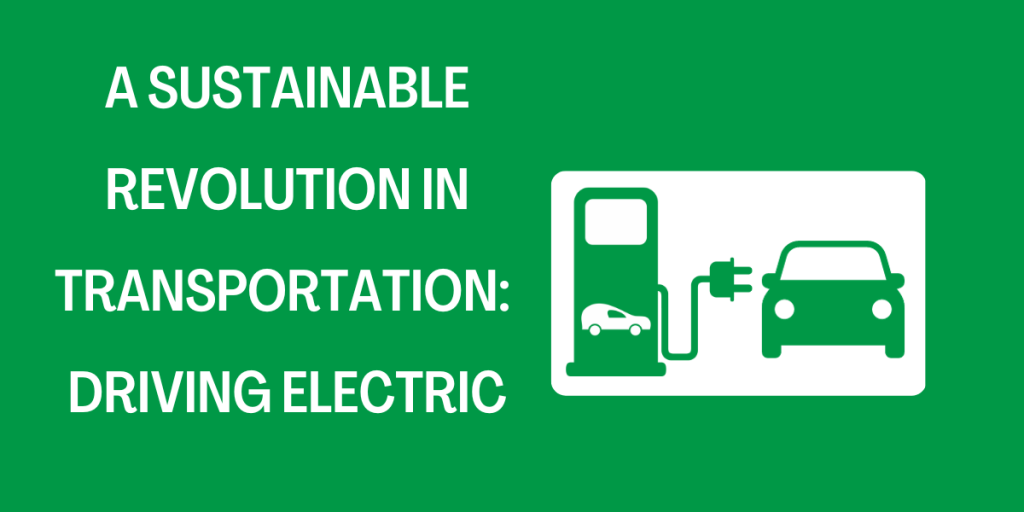The growth of electric cars (EVs) has caused a seismic upheaval in the automotive sector, thanks to the quick development of technology. Many people and organizations are switching from conventional gasoline-powered automobiles to electric vehicles as worries about climate change and environmental sustainability have grown increasingly widespread. This change has the potential to lower carbon emissions, diminish our reliance on fossil fuels, and alter how we see and interact with transportation.
Environmental Responsibility
The transition to electric cars is driven by a pressing environmental need. The toxic pollutants carbon dioxide (CO2), nitrogen oxides (NOx), and particulate matter that are released by conventional gasoline-powered automobiles have a substantial role in air pollution and climate change. The primary cause of CO2 emissions worldwide is the combustion of fossil fuels for transportation.
On the other hand, while an electric car is operating, there are no emissions from the exhaust. They may be powered by a number of sources, such as renewable energies like wind, solar, and hydropower, opening the door to the possibility of a transportation system that is almost carbon neutral.

Carbon Footprint Reduction
The huge decrease in carbon footprint is one of the main arguments in favor of electric vehicles. Since the transportation industry makes up a significant portion of the world’s greenhouse gas emissions, electrifying it may be crucial to meeting climate goals.
The kind of power used for charging determines how much carbon an electric vehicle emits. The total emissions produced by electric cars are much lower than those produced by conventional gasoline-powered vehicles in areas where a large percentage of energy is produced from renewable sources. The carbon footprint of EVs will continue to shrink as the use of renewable energy increases.
Economic Benefits
It is becoming more and more clear that driving electric has financial benefits. While buying an electric car might cost more upfront than buying a traditional gasoline car, the long-term operating and maintenance expenses are often less.
Electric vehicle owners save money on fuel since electricity is often more cost-effective per mile than gasoline. Electric cars also need less maintenance since they have fewer moving components. Regenerative braking, which lessens the strain on the brake pads, eliminates the need for oil changes, and extends the lifespan of the brake systems.
Government incentives and subsidies offered in many nations further sweeten the deal, making the switch to electric cars even more alluring financially. Tax credits, rebates, waived registration costs, and access to carpool lanes are a few examples of these incentives.
Technological Progress
Significant advancements in electric vehicle technology have been made as a result of the quick development of technology. Compared to their previous predecessors, modern electric cars have greater performance and longer driving ranges.
The electric car industry has seen a paradigm shift thanks to the development of high-capacity batteries with increased energy density. The most popular battery type for EVs, lithium-ion, has seen significant development in recent years, increasing range and speeding up charging. Additionally, further advancements in battery technology offer the potential for even more effective and environmentally friendly energy storage options.
improving the infrastructure for charging
The availability and accessibility of charging infrastructure are critical aspects of the mainstream adoption of electric cars. To combat “range anxiety” – the worry that one would run out of battery power before reaching a charging station — governments, companies, and people are investing in the development of charging stations.
For the convenience of EV owners, public charging stations are being erected in metropolitan areas, beside roads, and at workplaces. Fast chargers and superchargers, among other developments in charging technology, are significantly lowering charging times and promoting the use of electric cars.
A New Approach to Urban Planning
Urban planning and development are undergoing a paradigm change as a result of the proliferation of electric cars. In order to handle the increasing number of EVs, cities are reevaluating their infrastructure. Incorporating charging stations into parking lots, neighborhoods, and public places falls under this category.
Additionally, smart charging, which allows EVs to be charged during off-peak hours to balance power consumption and optimize the usage of renewable energy sources, is being considered by urban planners. This strategy optimizes the charging procedure while easing the load on the power system.
overcoming obstacles
The switch to electric cars has great potential, but it is not without difficulties. The lack of adequate charging infrastructure, particularly in rural and isolated places, is one of the main challenges. A concerted effort is required to extend the charging network and make it available to everyone in order to remedy this.
Prospective consumers continue to have reservations about the electric car range and recharge periods. Increased public awareness efforts, together with improvements in battery and charging infrastructure, may help allay these worries and encourage more people to transition to electric vehicles.
Conclusion
The transition to electric cars is a seismic upheaval in the automotive sector with far-reaching effects on the economy, the environment, and urban planning. Driving electric vehicles seems like a tempting way to tackle climate change and minimize our carbon footprint as we work toward a sustainable future.
We are at the beginning of a new era in transportation because of continued technology developments, improved accessibility to charging infrastructure, and a rising knowledge of the advantages of electric cars. One electric car at a time, the path to a greener, more sustainable future is being laid.